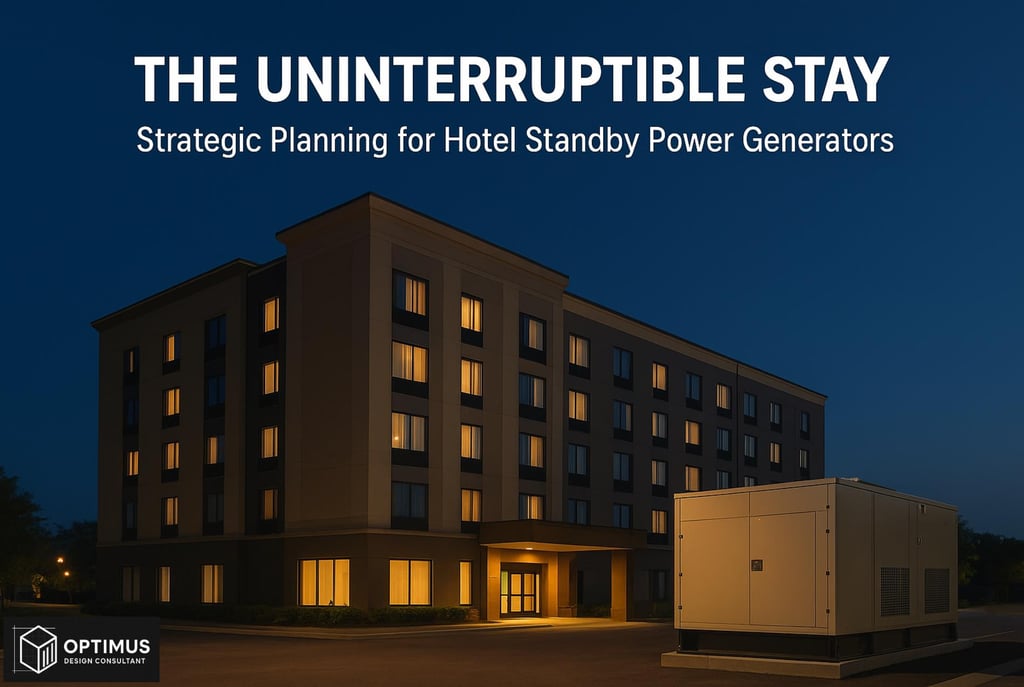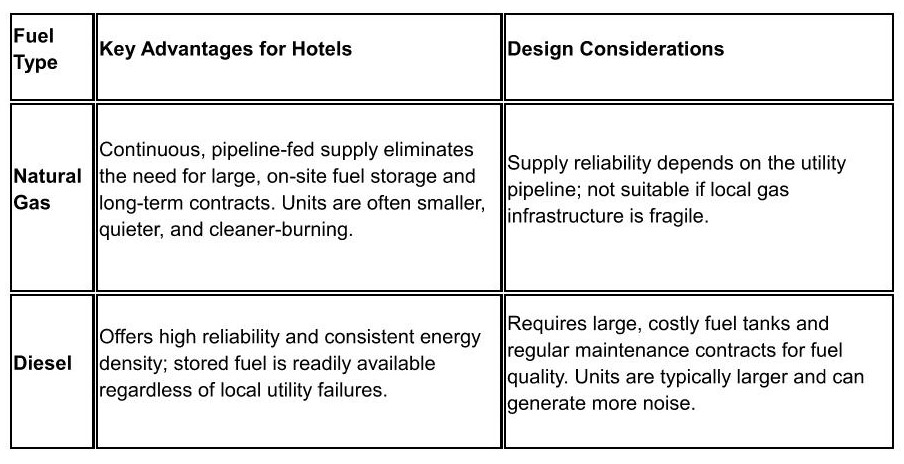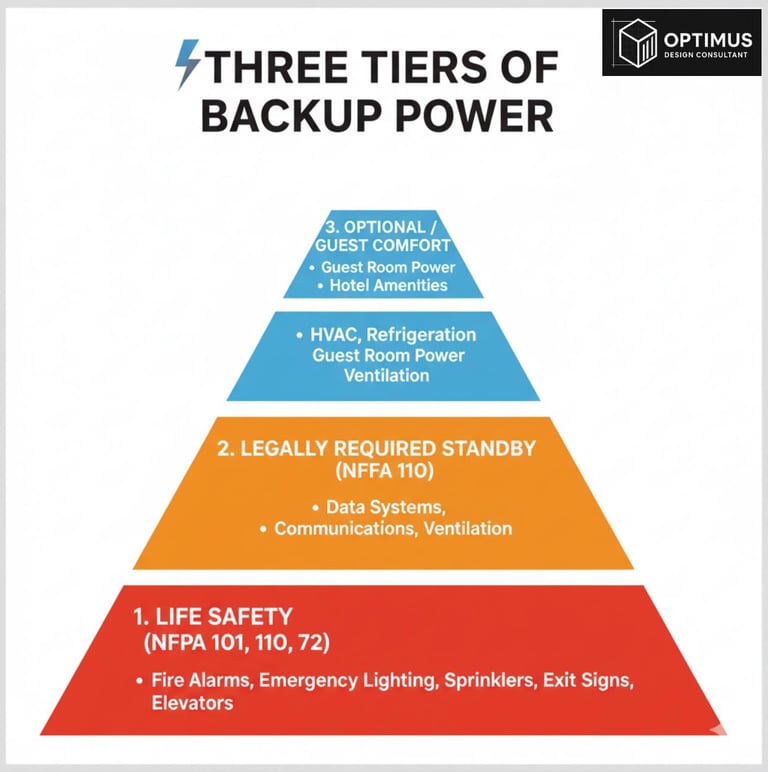The Uninterruptible Stay: Strategic Planning for Hotel Standby Power Generators
In the 24/7 world of hospitality, maintaining continuous operation is non-negotiable. When the unexpected happens—a severe weather event, grid failure, or local utility interruption—a reliable backup power source is the ultimate assurance of guest safety, comfort, and sustained business continuity. For hotel owners and developers, installing a standby generator is more than meeting code; it is a fundamental pillar of operational resilience and risk management.
10/22/20252 min read


When is a Generator Mandatory? Code and Compliance
While all hotels benefit from backup power, specific building codes, such as the National Electrical Code (NEC), often dictate generator requirements based on building height and function. Generally, multi-story buildings, particularly those exceeding four or five stories above grade, are mandated to have emergency power systems to protect life safety circuits.
However, many hotel chains choose to exceed the minimum code requirements to ensure a seamless guest experience, regardless of a power outage.
Sizing and Scope: The Three Tiers of Backup Power
A critical aspect of generator design is accurately determining the necessary power capacity (kW). This involves calculating the maximum simultaneous load across three distinct tiers:
For typical mid-scale and limited-service hotels (e.g., in the 100-250 kW range), Natural Gas is often favoured due to its smaller footprint and easier maintenance profile.
Placement and Environmental Considerations
A generator is substantial, heavy equipment (e.g., a 150 kW unit can require a 50 sq. ft. pad). Early design integration is paramount to address these key concerns:
Acoustic Barriers: Generators are loud. Strategic placement and/or the incorporation of sound-attenuating enclosures or barriers are vital to prevent noise from disturbing guestrooms or neighbouring properties.
Access and Clearances: Adequate space is needed for maintenance technicians to safely service and inspect the unit, as mandated by fire and electrical codes (NFPA requirements).
Flood Risk: In flood-prone or coastal regions, the generator unit and its electrical components must be placed on elevated platforms to prevent damage and ensure operation during water events.
Consult with Our MEP Specialists
The proper specification, sizing, and placement of a hotel standby generator requires specialised expertise to navigate code requirements, balance guest comfort demands, and ensure long-term operational reliability.
Don't wait for a power outage to test your resilience.
We provide comprehensive electrical engineering and MEP design services to ensure your hotel's backup power system is compliant, appropriately sized, and ready when you need it most. Consult with our team today for an electrical redundancy plan tailored to your specific project.
Thank you,
Pratik Farkade
Founder, Optimus Design Consultant
Email: pratik@optimusdesignconsultant.com
WhatsApp: +91 7972991226


1. Emergency Circuits (Life Safety)
These circuits are legally mandated to remain operational during an outage. They include core functions that protect occupants and facilitate safe evacuation:
Egress path lighting and exit signs
Fire alarm and communication systems
Fire pumps and essential control equipment
Specific building security and access systems
2. Legally Required Standby Circuits
These systems ensure continued semi-normal building function and accessibility:
Elevators (at least one per bank)
Emergency ventilation and smoke control
Front desk and data communication systems
Critical computer and server equipment
3. Optional Standby Circuits (Guest Comfort)
While not required by code, powering these circuits is essential for maintaining brand standard and guest satisfaction, particularly in upper-tier hotels. This includes key loads such as:
Critical food storage refrigeration
Select guestroom and common area HVAC units
Limited general-use receptacles and lighting
Fuel Types: Diesel vs. Natural Gas
The selection of a fuel source—primarily diesel or natural gas—impacts generator size, placement, and long-term maintenance costs.


Services
High- quality BIM design and MEP coordination services tailord to your project needs.
Consultancy
GET IN TOUCH
Whatsapp: +91 7972991226
© 2025. Optimus Design Consultant. All rights reserved.
